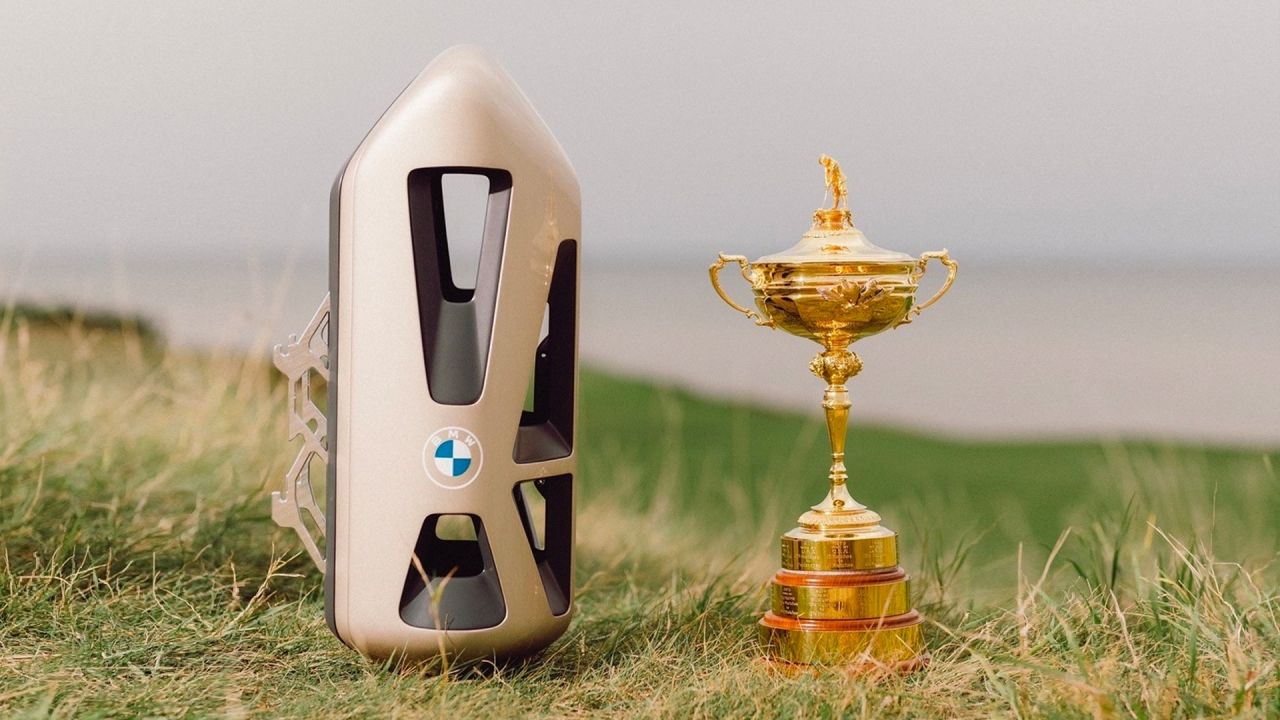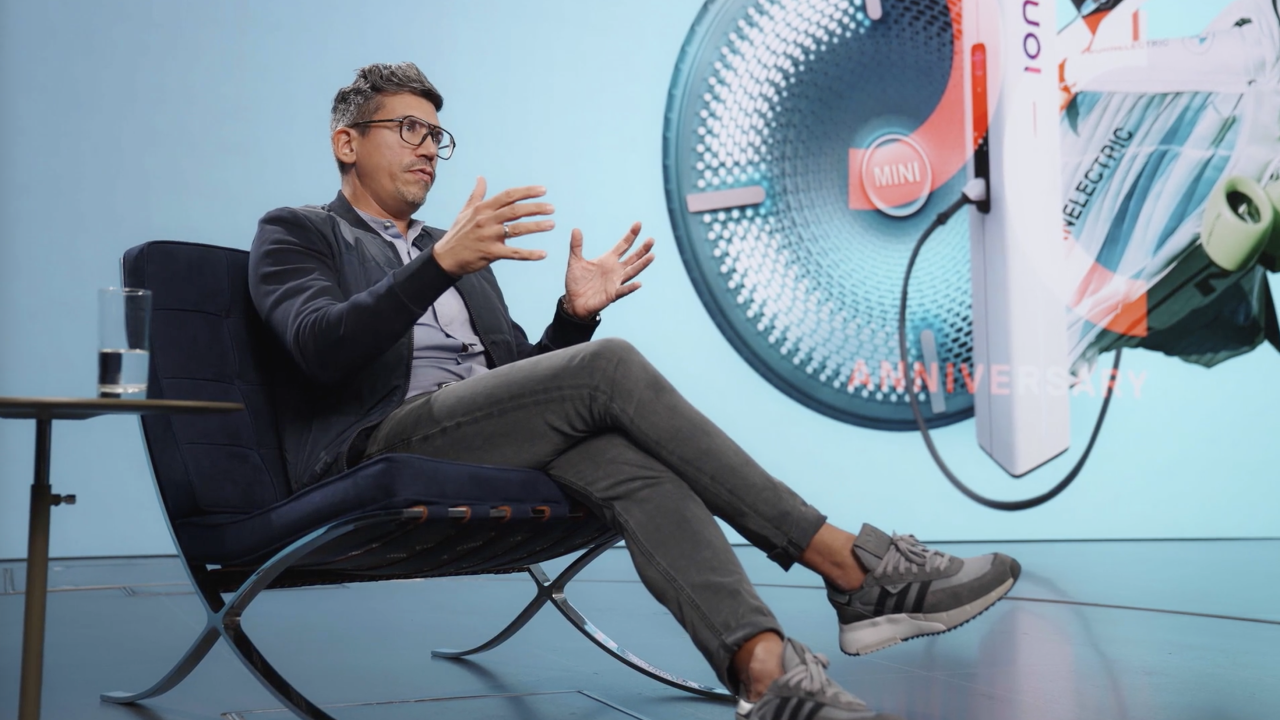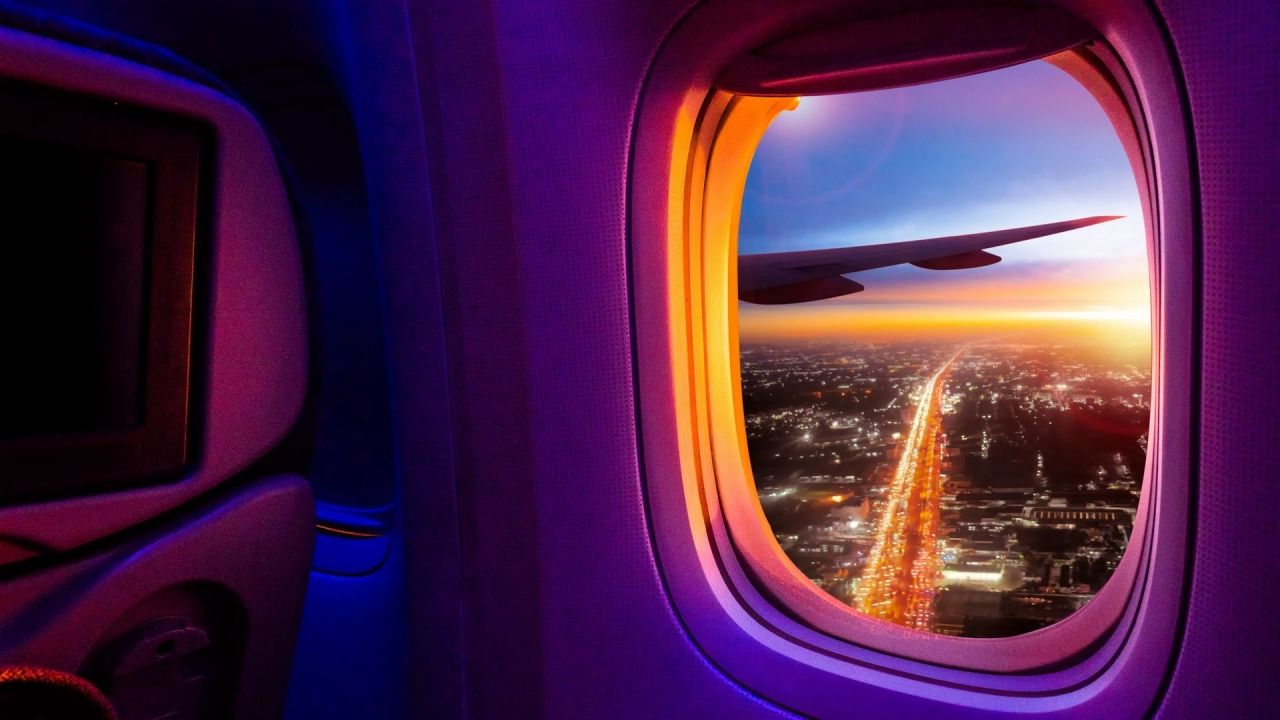Inspiring a Healthier Way of Doing Business
Introduction
The desire for a more balanced planet is driving creative change across industries. But it’s too late to talk about transforming mindsets. Now is the time to transform what individuals and organizations actually do. Anne Farken is devoted to design – and passionate about exploring the potential for design to shape the world’s social and economic future. In this series, she shares insights from her experience of working with clients and partners to develop a vision for sustainable entrepreneurship in her role as Associate Director Sustainability & Creative Consulting at Designworks.
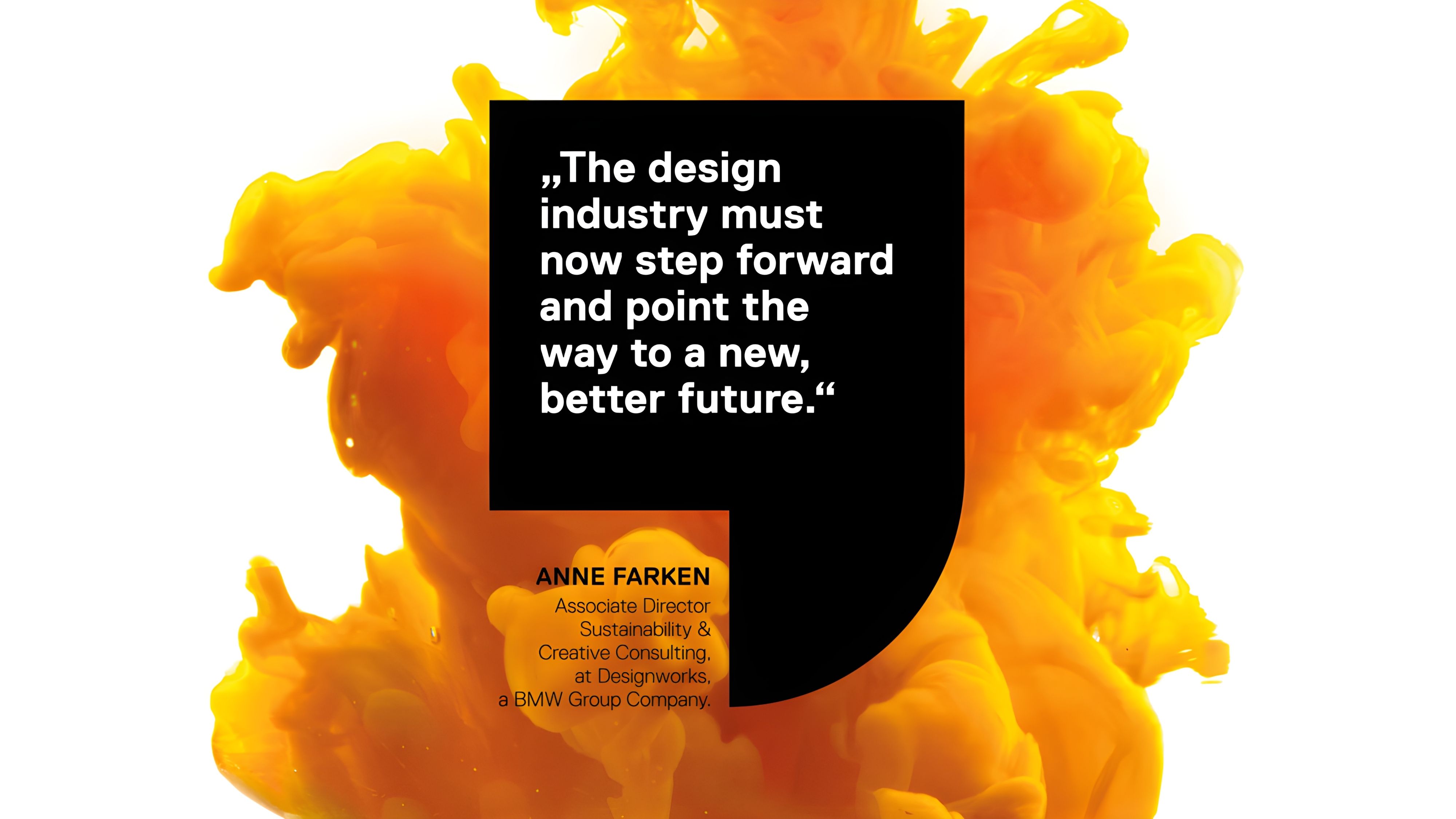
How exactly do you share your sustainability expertise in your daily work?
I’ve been responsible for sustainability competencies at Designworks since 2010. That means I act as an interface between design and sustainability. It’s a role that we created based on our understanding of how sustainability consultants make a positive impact that reaches far beyond topics related to materials – and extends across the entire design process chain.
The biggest topics for my daily work include systematically integrating sustainability into creative processes, as well as providing strategic and issue-based consulting. That involves working for our parent company, the BMW Group, and also for a broad range of international clients from across industries. On top of this, I maintain close ties with the academic world and I’m always looking for new and future-oriented strategic partnerships. But I don’t just want to dive into the details of these issues. Instead, I want to cross-link knowledge from different areas and help to make it accessible.
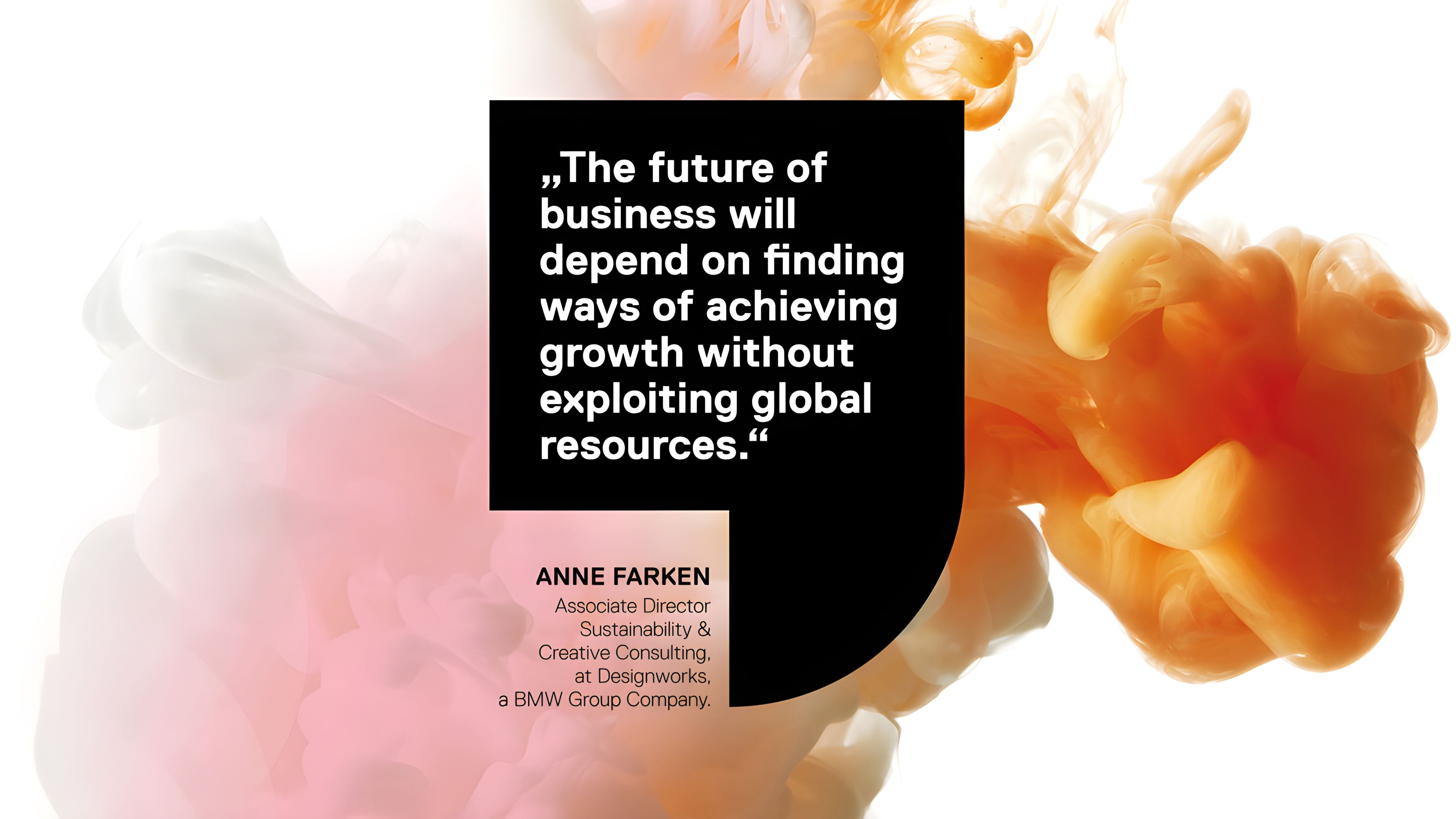
Industries, markets and societies are transforming – what does this mean for design?
The future of business will depend on finding ways of achieving growth without exploiting global resources. For design, that means switching away from isolated product-thinking and embracing holistic systems-thinking instead. It’s going to be increasingly important to consider environmental and social factors in decision-making processes. That’s why I believe designers will need to place a laser-sharp focus on value creation.
Future-oriented design is about taking the entire value chain into consideration at every stage, starting from the very beginning. Designers need to think about environmental and social responsibility in terms of raw materials, production, transportation, product use, disposal and recycling… and they need new business models that measure success in new ways. The outdoor clothing company VAUDE is a great example. Its annual report includes criteria from the Economy for the Common Good (ECG), an economic model that aims to increase commitments to topics including human dignity, solidarity and transparency. This strong statement shows that it pays off, in economic terms, when companies balance business interests with ecological and social interests.
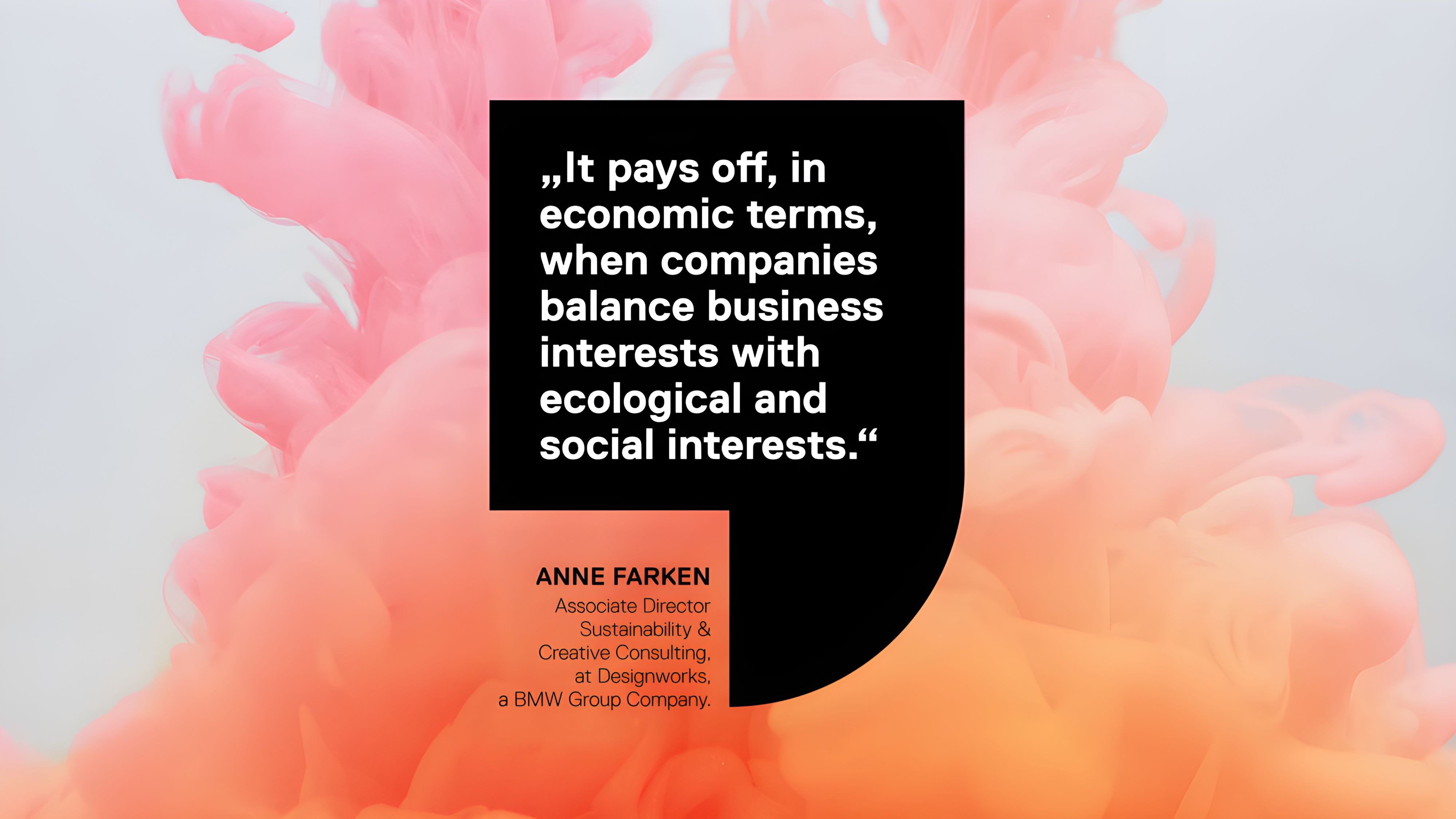
How can design support these transformations?
Design opens up incredible potential for transformation in a massive variety of ways. Above all, it can generate enthusiasm for change – and that’s a key factor in successful transformation. Design plays such a big role because around 80 percent of a product’s environmental and social impact is already determined during the development phase. That means creatives have a major influence on how a product affects people and the planet. And if they help to develop products that are both attractive and resource-efficient, designers can promote more sustainable user behavior.
Ultimately, it’s not enough to simply improve products or services that already exist. The design industry must now step forward and point the way to a new, better future. Companies can tap into this enormous potential positive impact by involving their designers beyond the product design stage – including inviting creatives to actively participate in the process of shaping the corporate strategy.
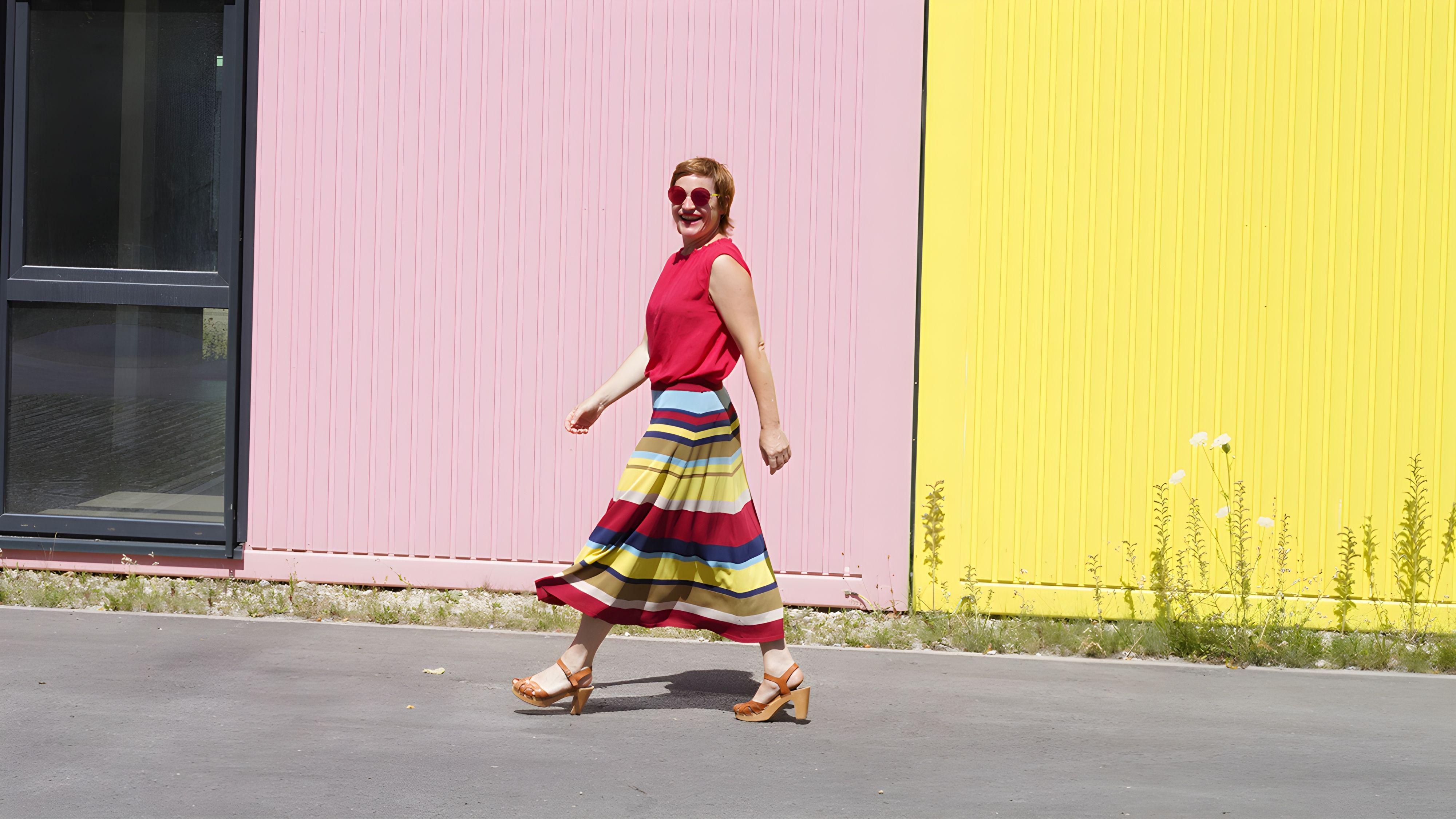
Anne Farken, Associate Director Sustainability & Creative Consulting, Designworks Munich
